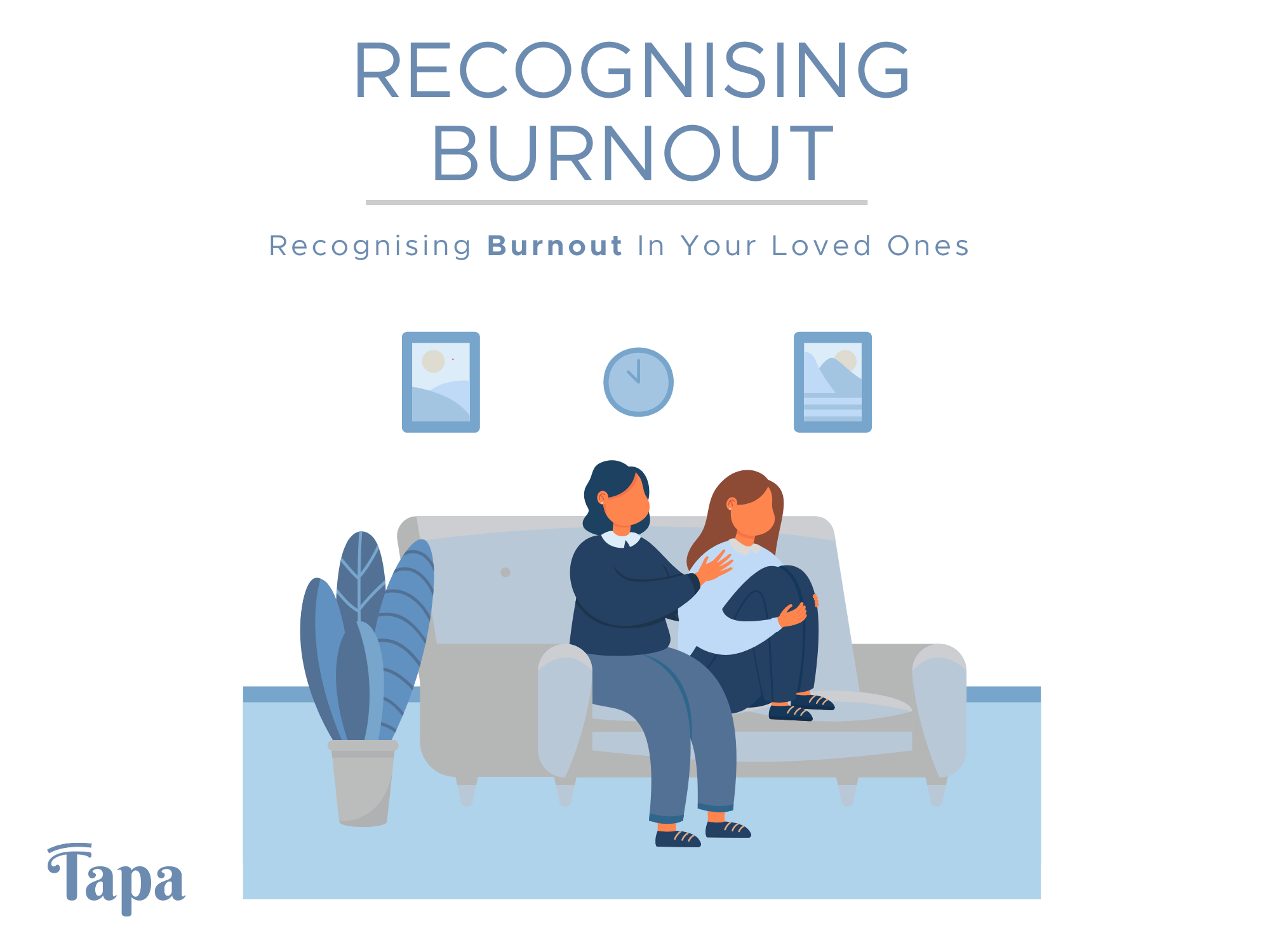Burnout is an all-too-common experience in today’s hectic world, affecting many people across various aspects of their lives. Recognising burnout in your loved ones can be challenging, especially as it often develops gradually. However, identifying the signs early can make a significant difference in helping them recover.
Understanding Burnout
Burnout is a state of emotional, physical, and mental exhaustion caused by prolonged stress. It often results from overwhelming work demands but can also stem from other life stressors. Recognising burnout in your loved ones requires attentiveness and sensitivity to changes in their behaviour and wellbeing.
Signs of Burnout to Look Out For
1. Persistent Fatigue
If your loved one appears constantly tired, regardless of how much rest they get, this could be a sign of burnout. They might frequently complain about feeling drained or exhibit a lack of energy that affects their daily activities.
2. Emotional Distress
Notice if they seem more anxious, overwhelmed, or emotionally fragile than usual. Burnout often brings feelings of helplessness, hopelessness, or being trapped in their situation.
3. Cynicism and Detachment
A significant red flag is a noticeable shift towards cynicism or negativity. Your loved one might become unusually critical or detached, expressing a lack of interest in activities they once enjoyed.
4. Increased Irritability
Burnout can manifest as irritability or impatience with others. If your loved one is snapping more often or showing frustration over minor issues, this could be an indication of underlying stress.

Source
5. Procrastination and Indecision
Struggling to make decisions or procrastinating on tasks they usually manage efficiently might indicate burnout. They might seem overwhelmed by tasks that once felt manageable.
6. Physical Symptoms
Pay attention to any unexplained physical complaints, such as frequent headaches, stomach issues, or other aches and pains. These physical symptoms can often accompany severe stress and burnout.
7. Withdrawal and Isolation
If your loved one starts withdrawing from social interactions or isolating themselves, this could be a sign of burnout. They might avoid social activities and prefer to be alone, even when they previously enjoyed being around others.
How to Support Your Loved One
Recognising these signs is the first step. Here’s how you can offer support:
1. Express Concern Gently
Approach the subject with care and compassion. Let them know you’ve noticed they seem stressed and that you’re concerned about their wellbeing. Use “I” statements to avoid sounding accusatory, such as “I’ve noticed you seem really tired lately. How are you feeling?”
2. Listen Actively
Give them space to talk about their feelings without interruption. Sometimes, having someone to listen can be incredibly therapeutic. Show empathy and understanding without immediately jumping to solutions.
3. Encourage Professional Help
Suggest seeking professional help, such as a therapist or counsellor, who can provide strategies and support for managing burnout. Offer to help them find a professional or accompany them to their first appointment if they feel hesitant.

4. Help with Small Tasks
Assist with daily tasks to lighten their load. Whether it’s cooking a meal, running errands, or helping with household chores, small acts of kindness can significantly ease their burden.
5. Promote Self-Care
Encourage them to engage in self-care activities that promote relaxation and wellbeing. This could include exercise, hobbies, or simply taking time to rest. Sometimes, reminding them to take care of themselves can make a big difference.
6. Be Patient
Recovery from burnout takes time. Be patient and continue to offer your support without pushing too hard. Your consistent presence can provide a sense of stability and reassurance.
Conclusion
Recognising burnout in your loved ones is crucial in helping them navigate through challenging times. By paying attention to the signs and offering compassionate support, you can play a vital role in their recovery. Remember, burnout is a serious issue, but with understanding and care, it is possible to help your loved ones regain their sense of balance and wellbeing. Your support can make all the difference.

